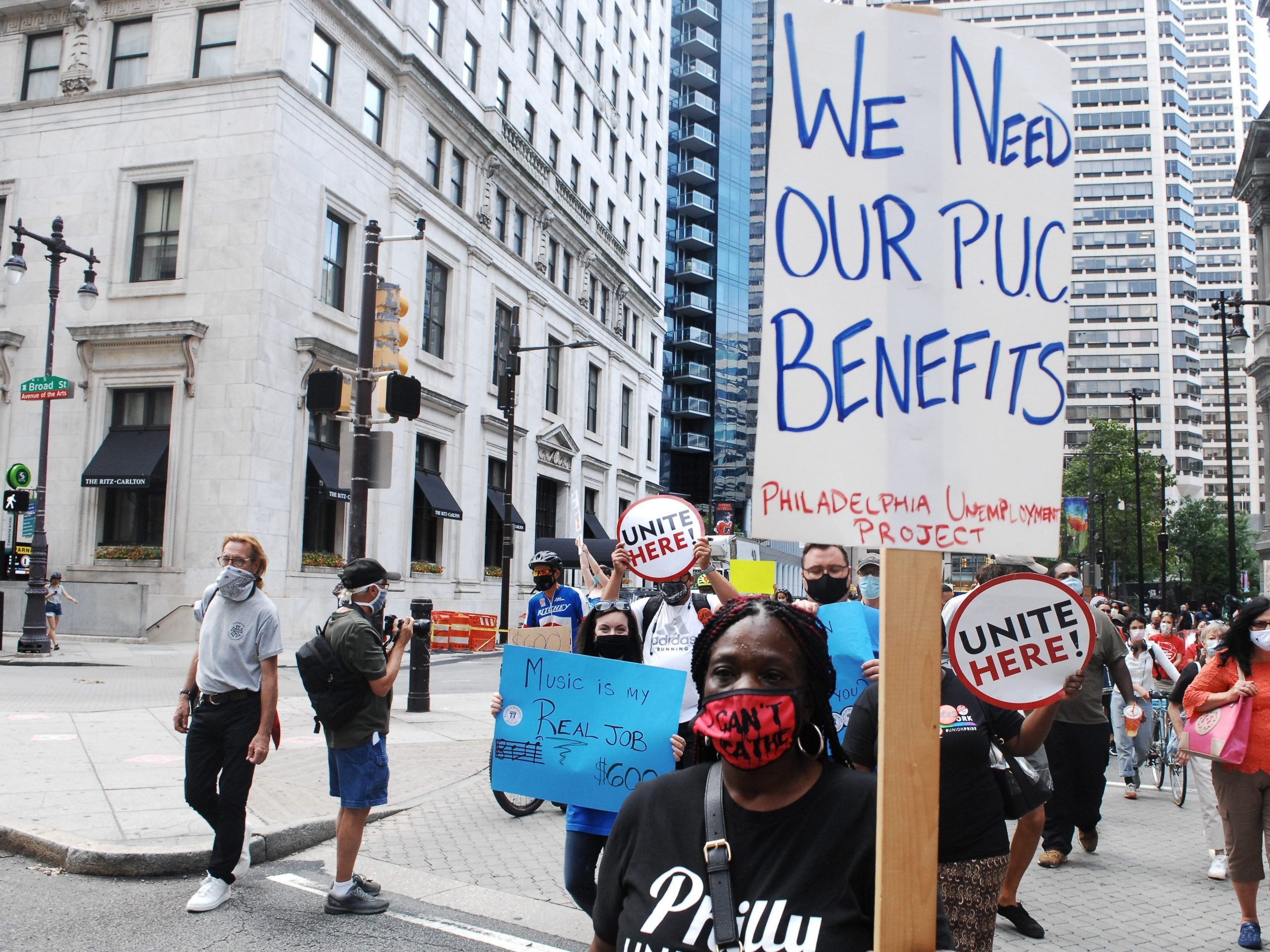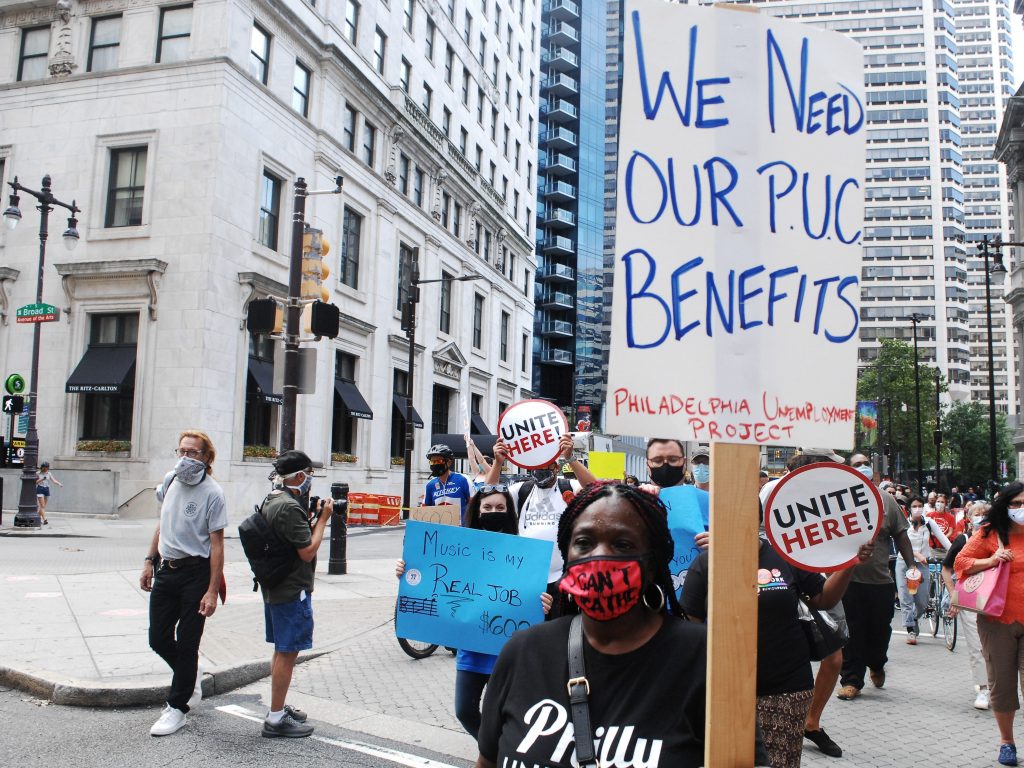
Cory Clark/NurPhoto via Getty Images
- Paul Constant is a writer at Civic Ventures and cohost of the "Pitchfork Economics" podcast with Nick Hanauer and David Goldstein.
- They recently spoke with Adam Tooze, a historian at Columbia University, about the pandemic's economic impact.
- Tooze says slashing aid benefits too soon could slow recovery and increase long-term inequality.
- See more stories on Insider's business page.
It's not very often that you can comprehend with 100% certainty that history is unfolding around you, that you're living in a moment that will be commemorated and studied for decades – even centuries – to come. For Adam Tooze, the Shelby Cullom Davis chair of History at Columbia University, March 6, 2020 was one such moment.
In the latest episode of "Pitchfork Economics," Tooze recalls his understanding that the world had changed forever.
"I started the year in Africa, and I was on the way back from Tanzania by way of Istanbul airport," Tooze explained. He'd seen some headlines about an outbreak in China, but he'd been unnaturally detached from the news during his trip. "I got to this giant airport that Erdoğan has built in Istanbul and all of a sudden people from all over the world were wearing these freakish masks. At that time, N95 (masks) weren't a thing, so they were wearing, like, construction workers masks. It was like a horror movie."
Tooze understood that human history was about to change forever. "This is going to affect everyone, literally everywhere in the world," Tooze recalled thinking, "And it's going to affect me and my family and the city that I live in in a way that nothing in my lifetime has ever come close to matching."
If anything, Tooze's new book about the early days of the pandemic, "Shutdown: How COVID Shook the World's Economy," proves that his snap predictions about the impact of the pandemic were almost too conservative. In the next month after Tooze's airport realization, global air travel was basically grounded, the global GDP plummeted, and nations went into lockdown. "In the recorded annals of economic history, such as we're familiar with, there's no moment like that ever before," Tooze said.
The pandemic's lasting economic impact
The pandemic, he says, will disrupt the work of economists for years to come. When running historic analysis, they will "basically have to bracket that entire period because the numbers are so freakish and then they produce rebound effects," Tooze explained. "It doesn't look like a war. It doesn't look like a regular recession. It looks like something much weirder, and it's so comprehensive" around the globe.
Tooze, whose "Crashed: How a Decade of Financial Crises Changed the World" is considered a fundamental exploration of the causes and effects of the Great Recession of 2008, generally offers high marks for the Federal Reserve's response to the pandemic.
"I actually think they were a little slow" to respond to the pandemic in the first month, he said, "but then they really flipped the switch" on spending. Governments around the world largely understood that in order to respond to the pandemic and its economic effects, they had to spend a lot of money.
A sequel to the Great Recession
After the worst impacts of the Great Recession ended, most of the world's democracies went into austerity mode, cutting budgets and slashing programs that invested in citizens, thereby slowing the recovery and expanding income inequality. Tooze worries that the same conditions exist now for a major push into austerity.
"The levels of debt which we're going to find ourselves at, once we do finally begin to exit from this crisis, are going to be eye-watering," Tooze warned. "People are going to have to avoid panic, because it's going to be very easy for scaremongers to come in and say, 'look, we've got to drastically cut entitlements,' because the numbers are going to be unprecedented."
The winners of the coming austerity fights will get to author the next decade of American history. It's a remarkable opportunity to learn from our mistakes and improve outcomes for everyone. Will America invest in reforming unemployment insurance, for instance, so that workers aren't forced to take the first awful job offer that comes along?
And if we could come together to ride out that first awful three months of COVID, can't we do the same to combat climate change?
"There's no reason why the likes of Oklahoma, Nebraska, Ohio, Missouri, Texas, should not emerge as green energy giants. They're perfect for it," Tooze said. With the pandemic, we've proven that our society can withstand a literally unprecedented shock to global economic systems. In comparison to that historic pain, the prospect of building a new green economy should seem pretty straightforward.
